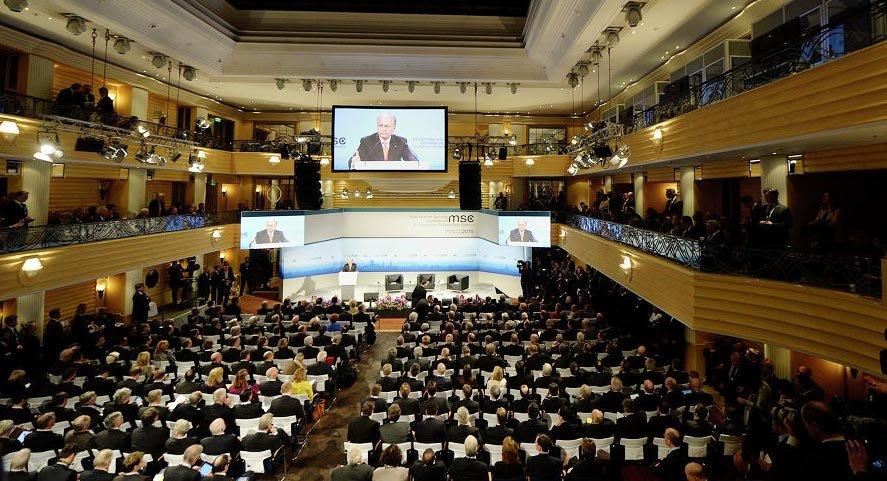In an interview with the website of the Strategic Council on Foreign Relations, Mahdi Shapouri considered no invitation of Iran and Russia to attend the Munich Security Conference as a sign of return to the era and atmosphere of the Cold War and said: It cannot be said that not inviting Iran to the non-governmental and informal meeting is a very important incident, but this issue shows how much they are trying to isolate Iran and Russia.
Shapouri further added: The main focus of the meeting was on the issue of the war in Ukraine, and the attendees emphasized the need to pay attention to the serious determination to confront Russia and send tanks, advanced air defense systems, and long-range missiles to Ukraine on time, and addressing other issues, including Iran, was below the war related issues. Among the politicians present at the conference, there was a consensus that Russia should not win the war in Ukraine, but should lose it, and supporting Ukraine should continue for as long as necessary. This look affected the entire conference.
Saying that the false claim of Tehran’s support for Russia in the Ukraine war was raised in the conference and it seems that the main reason for not inviting Iran was that claim; though the pressure of the Iranian opposition and some European civil organizations, due to the recent unrest, had an impact on it, he added: The Munich Security Conference is non-governmental and has been formed with an aim of providing an atmosphere for the presence of political and security figures to raise important issues of each era and create security discourses.
This member of the academic faculty of the Strategic Studies Research Institute reminded that governments do not have a role in shaping the conference and the presence or absence of personalities, and continued: Since the meeting was supposed to discuss the details of the war in Ukraine and how to deal with Russia, not inviting Moscow was predictable, but Iranian officials were invited to that conference in the past years and had found a place in it. Therefore, we cannot remain indifferent to lack of inviting Iran to this year’s meeting.
Stating that non-invitation is a political and symbolic action against the Islamic Republic of Iran, Shapouri added: Such incidents may continue and somehow seek to isolate, discredit and delegitimize Iran, which must be dealt with.
He said: The Munich conference was always a place to discuss the security issues of the world, and as a rule, there should have been a discussion in it regarding the broader aspects of security, the numerous current security issues and the true root of what happened today. There are wider security issues in the world, and it is not only the Ukraine issue that is considered as a world security challenge. In addition, the beneficiaries of this war and its main factors were not addressed, while from the beginning this conference was established with an aim of preventing conflicts and wars.
Remembering that the purpose of creating that conference since the Cold War was that prominent figures and politicians express the security issues of the West and exchange views about them in order to create dialogue and consensus, the expert continued: During the Cold War, the Soviet Union Eastern bloc countries were not invited to the conference, but after the Cold War, as the atmosphere of ideological confrontation disappeared, non-Western countries were gradually invited, and Iran was also invited to that conference for several years. Now not inviting Iran and Russia also shows a return to the era and atmosphere of the Cold War.
Shapouri called Beijing’s invitation to attend the Munich Security Conference important for its organizers and said: Although the recent tensions between the United States and China were among the issues raised in that annual conference, they did not observe China in the category of countries that pose an immediate threat to them.
He pointed to the external pressure not to invite Iran and Russia to that non-governmental conference and the inability of its organizers to stand up to those pressures and added: False claims about Iran’s drone support for Russia in the Ukraine war have had a strong impact in Europe and we have witnessed negative advertisements and frequent discussions about this in Western media. Such conditions have created a hostile atmosphere against the Islamic Republic of Iran and its coincidence with internal unrest has intensified those conditions.
Shapouri emphasized: We should be alert to the general atmosphere that has been formed in the past months towards Iran and should not allow some opposing movements to impose more costs on the country with the support of foreign governments and services. It is necessary to act more actively in the field of diplomacy and take seriously the capacities of public diplomacy. Serious measures should be put on the agenda to deal with actions that are carried out with the aim of Iranophobia and delegitimization of the Islamic Republic of Iran. The continuation of current conditions can create more costs for the country in the long run.










0 Comments